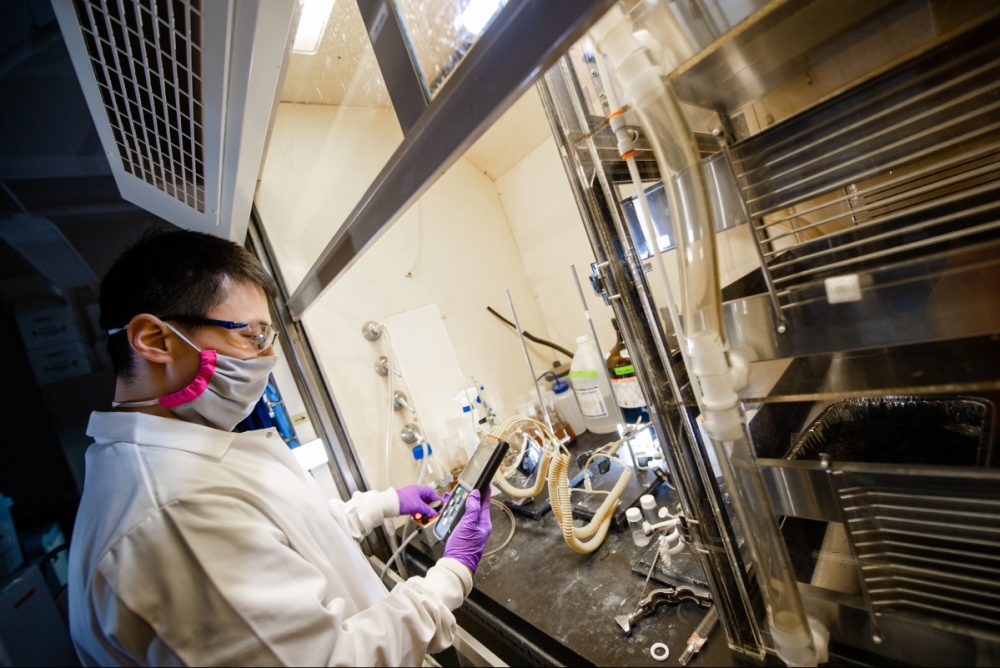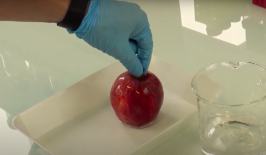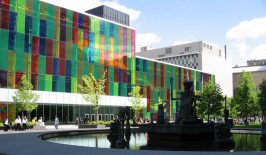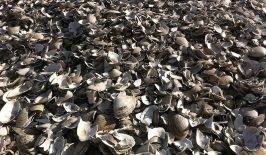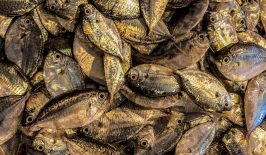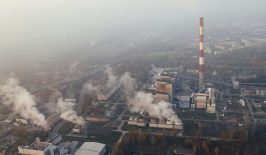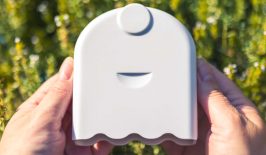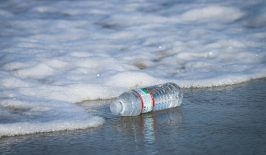Researchers from two US universities have been awarded a one million EUR prize for creating a ‘Food Generator’ capable of transforming plastics into proteins.
Professor of bioengineering at the University of Illinois Urbana-Champaign, Ting Lu, and associate professor of biological sciences at Michigan Technological University, Stephen Techtmann, won the 2021 Future Insight Prize for a design which could potentially solve two problems with one solution: that of plastic waste, and food insecurity.
Professors Lu and Techtmann looked at ways of using microbes to turn inedible biomass, such as certain plants and unpalatable parts of foodstuff, into safe and nutritious food within one day. To do this, certain naturally occurring communities of microbes, such as bacteria and fungi, can be used to metabolise inedible material and convert into edible proteins. To further improve their performance and widen their potential applications, the microbes were also subject to microbial synthetic engineering, in which the gene circuits of the microbes are modified to result in different chemical reactions. These reactions can be used to turn waste into useful materials, such as food proteins.
They have dubbed their creation, the ‘Food Generator’ and while they can create bacterial biomass that is itself around 50 percent protein, they hope to take the concept further to produce more varied products. For example, with the aid of the reward, the team aims to create complex proteins containing a series of enriching additives, such as amino acids, polyunsaturated fats and vitamins.
Junk Food
Perhaps most groundbreaking of all, is the duo’s work in using synthetic materials themselves, such as plastic, as the basis of the Food Generator. We have previously covered bacteria that could be used to break down plastics, but often microbial growth on plastics, such as polyester, is too slow to be useful. To tackle this, Lu and Techtmann engineered depolymerization enzymes to be more efficient, improving their ability to breakdown plastics, including PET.
The current process converts plastics into oily compounds using heat and a reactor that deconstruct the plastic’s polymer chains. This oily-substance is then fed to a community of oil-eating bacteria to result in bacterial cells that are around 55 percent protein. It is the idea that one day, such technology, if used at scale, could cut down on pollution and increase food production.
It is also possible to turn waste stock into other substances, including chemicals such as gamma-aminobutyric acid, which has been used as a natural remedy for stress and anxiety. The ultimate goal of the Food Generator is to create a platform which can be customised to meet the needs and demands of various actors, whether they be industrial, agricultural or non-governmental.
However, the team also understands the Food Generator is not a silver bullet to the world’s pollution and food insecurity issues. Instead, they envision its food production capabilities to only be used to address a direct crisis, such as a famine or extreme climate event. Ultimately though, it is also possible a version of the Food Generator could also be developed for personal use in the home, or in various industrial processes. It is also possible, the very same technology could be applied to turning waste, plastic or otherwise, into products such as fuel.
The Future Insight Prize has been awarded by German science and technology company Merck since 2019, with previous winners including technology designed to improve multi-drug resistance, as well as pandemic protection.
